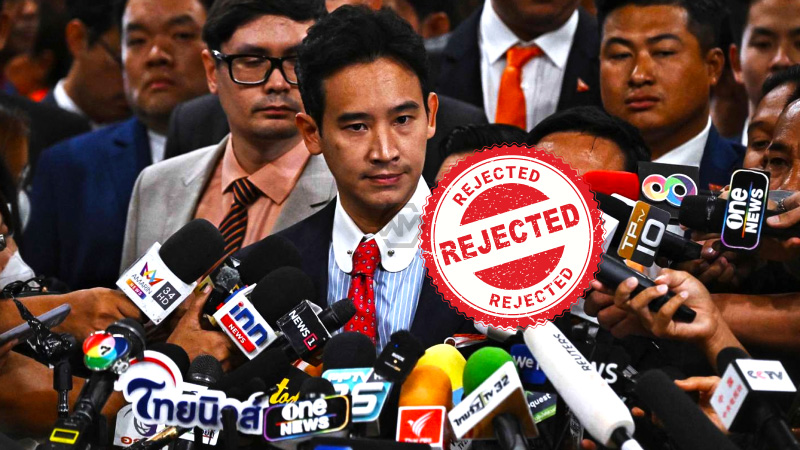Pita Limjaroenrat of Thailand lost his first attempt to become the country’s next prime minister after being defeated in a crucial parliamentary vote that included numerous absentee votes and nearly 200 abstentions.
Despite having the support of his eight-party coalition, Move Forward’s leader, who won the election, found it difficult to win over more than half of the 749 members of the bicameral parliament.
Pita Limjaroenrat’s candidature
Next week’s election is anticipated to be repeated, and Mr. Pita is eligible to run if renominated. The May 14 election was dominated by the progressive Move Forward party and its alliance partner, Pheu Thai, and was widely viewed as a resounding rejection of nearly ten years of government-supported or led by the royalist military.
The vote on Thursday served as a crucial litmus test for Mr. Pita’s political influence and a barometer of opposition to his party’s anti-establishment platform, which calls for the exclusion of the military from politics, the restriction of commercial monopolies, and the modification of a law that imposes lengthy prison sentences for insulting the monarchy.
- Pita Limjaroenrat loses Thailand’s prime minister bid amid absentee votes.
- Vote evaluates Pita’s influence, opposition to the anti-establishment platform, and military exclusion.
- Pita faces conflict with conservatives and old-money families in Thai politics.
The 42-year-old’s defeat was the latest setback in a rough two days for him. On the day of the vote, two legal charges against him gained pace, including a proposal to disqualify him, which prompted hundreds of protesters to gather and warn of plots to keep Move Forward out of power.
Due to his steadfastness in pursuing Move Forward’s goal, Mr. Pita has come into conflict with a significant group of conservatives and old-money families that have dominated Thai politics for decades and were anticipated to try to obstruct him in parliament.
Mr. Pita needed to persuade some of the 249 members of the conservative-leaning upper chamber Senate, who were chosen by the military after a 2014 coup, despite winning the election with overwhelming support from young people and popularity in the nation’s capital Bangkok.



